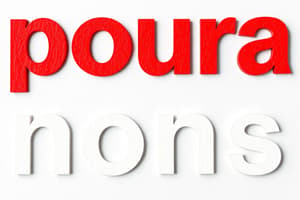Podcast
Questions and Answers
A ______ noun is a noun that shows ownership or possession of something.
A ______ noun is a noun that shows ownership or possession of something.
possessive
There are three types of possessive nouns: individual, plural, and ______ possessive nouns.
There are three types of possessive nouns: individual, plural, and ______ possessive nouns.
compound
To form the possessive of a singular noun, you add ______ to the end.
To form the possessive of a singular noun, you add ______ to the end.
's
Plural nouns that end in -s require adding only an ______ to form the possessive.
Plural nouns that end in -s require adding only an ______ to form the possessive.
Possessive ______ replace possessive nouns and show ownership, such as 'mine' or 'yours'.
Possessive ______ replace possessive nouns and show ownership, such as 'mine' or 'yours'.
Possessive ______ describe a noun and show ownership, such as 'my' or 'her'.
Possessive ______ describe a noun and show ownership, such as 'my' or 'her'.
The key difference between possessive pronouns and possessive adjectives is that possessive pronouns ______ alone, while possessive adjectives describe a noun.
The key difference between possessive pronouns and possessive adjectives is that possessive pronouns ______ alone, while possessive adjectives describe a noun.
To form the possessive of a singular noun that ends in -s, -z, -sh, -ch, or -x, you add only a ______ to the end.
To form the possessive of a singular noun that ends in -s, -z, -sh, -ch, or -x, you add only a ______ to the end.
To form the possessive of a plural noun that ends in -s, you add only a ______.
To form the possessive of a plural noun that ends in -s, you add only a ______.
The word '_______' is a possessive pronoun that shows ownership and is used in place of 'my'.
The word '_______' is a possessive pronoun that shows ownership and is used in place of 'my'.
The possessive form of the plural noun 'children' is _______.
The possessive form of the plural noun 'children' is _______.
Possessive pronouns, such as 'hers' and 'its', do not change ______, unlike nouns and adjectives.
Possessive pronouns, such as 'hers' and 'its', do not change ______, unlike nouns and adjectives.
Flashcards are hidden until you start studying
Study Notes
Possessive Nouns
Definition
- A possessive noun is a noun that shows ownership or possession of something.
- It indicates that something belongs to someone or something else.
Types
- Individual possessive nouns: show possession by one person or entity (e.g., John's book)
- Plural possessive nouns: show possession by more than one person or entity (e.g., the students' books)
- Compound possessive nouns: show possession by a compound noun (e.g., the mother-in-law's car)
Formation Rules
- Singular nouns: add 's to form the possessive (e.g., cat -> cat's)
- Plural nouns that end in -s: add only an apostrophe (e.g., cats -> cats')
- Plural nouns that do not end in -s: add 's (e.g., children -> children's)
- Irregular nouns: follow special rules (e.g., mouse -> mouse's, but men -> men's)
Pronouns
- Possessive pronouns: replace possessive nouns and show ownership (e.g., mine, yours, his, hers, its, ours, theirs)
- Possessive adjectives: describe the noun and show ownership (e.g., my, your, his, her, its, our, their)
- Key differences: possessive pronouns stand alone, while possessive adjectives describe a noun.
Possessive Nouns
- A possessive noun is a noun that shows ownership or possession of something, indicating that something belongs to someone or something else.
Types of Possessive Nouns
- Individual possessive nouns show possession by one person or entity (e.g., John's book)
- Plural possessive nouns show possession by more than one person or entity (e.g., the students' books)
- Compound possessive nouns show possession by a compound noun (e.g., the mother-in-law's car)
Formation Rules for Possessive Nouns
- Singular nouns form the possessive by adding 's (e.g., cat -> cat's)
- Plural nouns that end in -s form the possessive by adding only an apostrophe (e.g., cats -> cats')
- Plural nouns that do not end in -s form the possessive by adding 's (e.g., children -> children's)
- Irregular nouns follow special rules (e.g., mouse -> mouse's, but men -> men's)
Possessive Pronouns and Adjectives
- Possessive pronouns replace possessive nouns and show ownership (e.g., mine, yours, his, hers, its, ours, theirs)
- Possessive adjectives describe the noun and show ownership (e.g., my, your, his, her, its, our, their)
- Key difference: possessive pronouns stand alone, while possessive adjectives describe a noun.
Forming Possessive Nouns
- Singular nouns form possessive by adding 's (e.g., cat → cat's)
- Exception: singular nouns ending in -s, -z, -sh, -ch, or -x add only an apostrophe (e.g., bus → bus')
Plural Nouns
- Plural nouns ending in -s form possessive by adding only an apostrophe (e.g., cats → cats')
- Plural nouns not ending in -s form possessive by adding 's (e.g., children → children's)
- Irregular plural nouns follow the same rules as singular nouns (e.g., men → men's, women → women's)
Possessive Pronouns
- Show ownership and replace nouns
- Examples: mine, yours, hers, its, ours, theirs
- Possessive pronouns do not change form, unlike nouns and adjectives
Studying That Suits You
Use AI to generate personalized quizzes and flashcards to suit your learning preferences.




